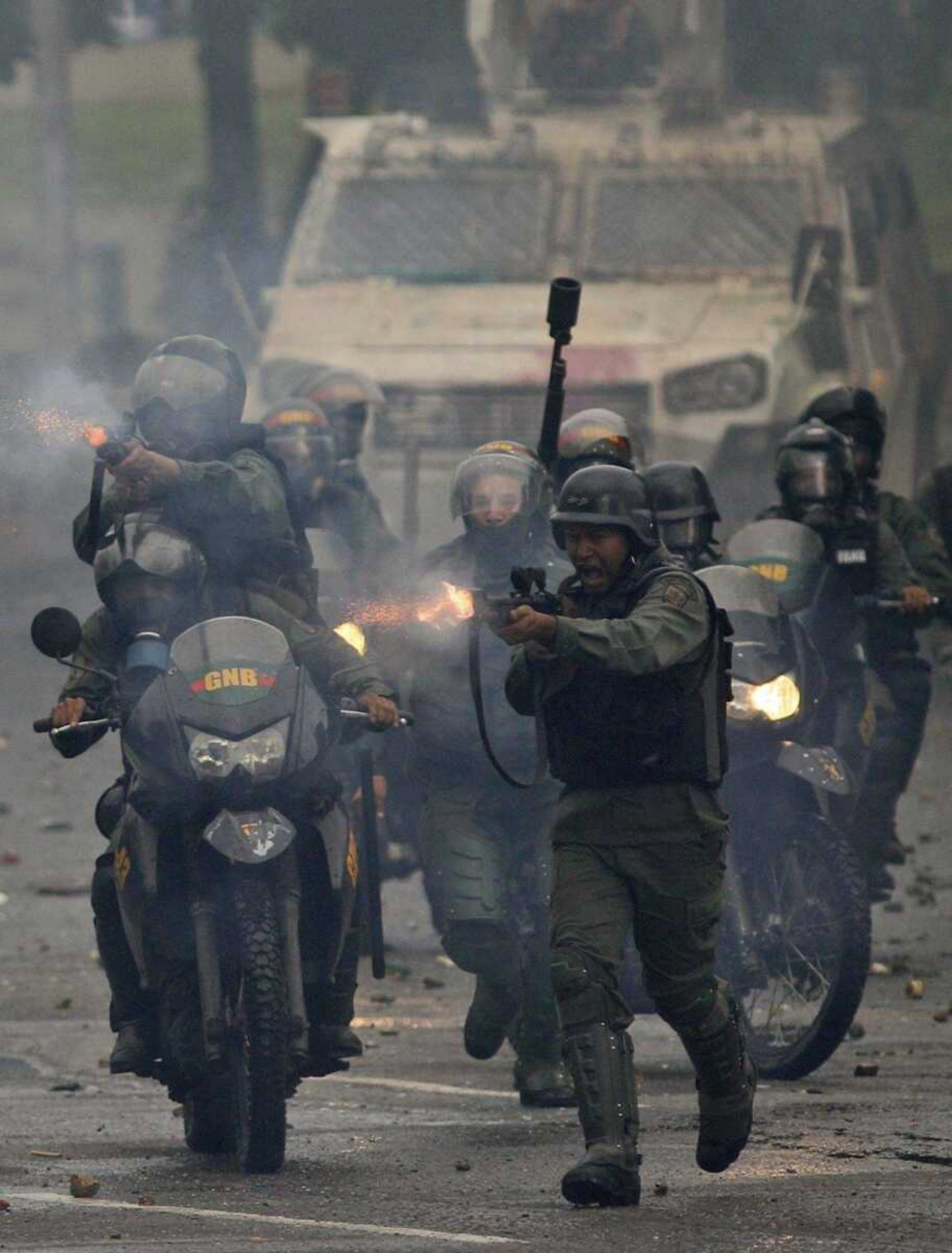Venezuela crisis enters new phase with vote today
CARACAS, Venezuela -- Despite four months of deadly protests and the threat of U.S. sanctions, Venezuela on Saturday found itself 24 hours away from a consolidation of government power that appeared certain to drag the OPEC nation deeper into a crisis that has neighborhoods battling police and paramilitaries while the poor root for scraps in piles of trash...
CARACAS, Venezuela -- Despite four months of deadly protests and the threat of U.S. sanctions, Venezuela on Saturday found itself 24 hours away from a consolidation of government power that appeared certain to drag the OPEC nation deeper into a crisis that has neighborhoods battling police and paramilitaries while the poor root for scraps in piles of trash.
In the opposition strongholds of relatively wealthy eastern Caracas, skinny teenagers manned barricades of tree branches, garbage and barbed wire torn from nearby buildings. Clashes with police began late Friday afternoon and lasted into the night. The months of violence have left at least 113 dead and nearly 2,000 wounded.
The rest of the capital was calm. Across the city, residents said they wanted President Nicolas Maduro out of power but didn't want to risk their lives or livelihoods taking on his socialist government and its backers.
"I have a young daughter; I can't risk anything happening to me," said Maria Llanes, a 55-year-old flower-store worker who lives in a south Caracas neighborhood dominated by armed pro-government motorcycle gangs. "What do I do? Protest in this neighborhood, so that they kill me? This area's run by a mafia loyal to the money the government pays them."
Maduro called for a massive turnout today for a vote to elect members of an assembly tasked with rewriting the 18-year-old constitution created under President Hugo Chavez.
The opposition is boycotting because, it says, the vote called by Maduro was structured to ensure his ruling socialist party dominates.
The opposition says the government is so afraid of low turnout, it's threatening to fire state workers who don't vote and take away social benefits such as subsidized food from recipients who stay away from the polls.
By Wednesday, the resulting National Constituent Assembly will become one of the most powerful organs in the country, able to root out the last vestiges of democratic checks and balances in favor of what many fear will be a single-party authoritarian system.
First Lady Cilia Flores, a candidate for the assembly, said it would create a commission to ensure those responsible for the political upheaval "pay and learn their lesson." Diosdado Cabello, first vice president of Venezuela's socialist party, says the assembly will strip legislators in the opposition-controlled National Assembly of their immunity from prosecution. He said the office of Venezuela's chief prosecutor, who recently became one of Maduro's most outspoken critics, would be "turned upside down."
"On July 30, the constitutional assembly will happen," Maduro said Friday at a subsidized housing ceremony. "I've been loyal to Chavez's legacy. Now it's your turn."
Washington has imposed successive rounds of sanctions on members of Maduro's administration and Vice President Mike Pence on Friday promised "strong and swift economic actions" after Sunday's vote. He didn't say whether the U.S. would sanction Venezuelan oil imports, a measure with the potential to undermine Maduro but cause an even deeper humanitarian crisis here.
Opinion polls show that more than 70 percent of the country is opposed to Sunday's vote. But as many as half of all Venezuelans support neither the government nor the opposition -- a phenomenon evident in the glum paralysis that has gripped much of the country as protesters and police wage nightly battles. While Venezuelans bitterly complain about shortages of food and medicine, few still respond to opposition calls for protests, a far cry from early demonstrations that saw hundreds of thousands pouring into the streets.
"Many strange things have taken place this week that makes you wonder what is going on with the opposition. I don't know. The opposition is at home, the opposition is hiding," Caracas resident Abed Mondabed said.
The opposition has organized a series of work stoppages and a July 16 protest vote it says drew more than 7.5 million symbolic votes against the constitutional assembly. It called late Friday for massive marches on the day of the assembly vote.
In the eastern neighborhood of Bello Monte, the site of fierce battles with police in recent days, a 54-year-old shop owner named Ricardo watched masked adolescents block a road with dumpsters as a soot-smeared, emaciated man picked through their contents for bits of food.
Ricardo, who declined to provide his last name for fear of government retaliation, said he felt the Sunday vote meant the last chance for political resolution of Venezuela's problems was gone, ushering in an even more violent phase.
"Negotiations have come to an end," he said. "The fight will continue and all of a sudden it could be a lot tougher."
Connect with the Southeast Missourian Newsroom:
For corrections to this story or other insights for the editor, click here. To submit a letter to the editor, click here. To learn about the Southeast Missourian’s AI Policy, click here.









